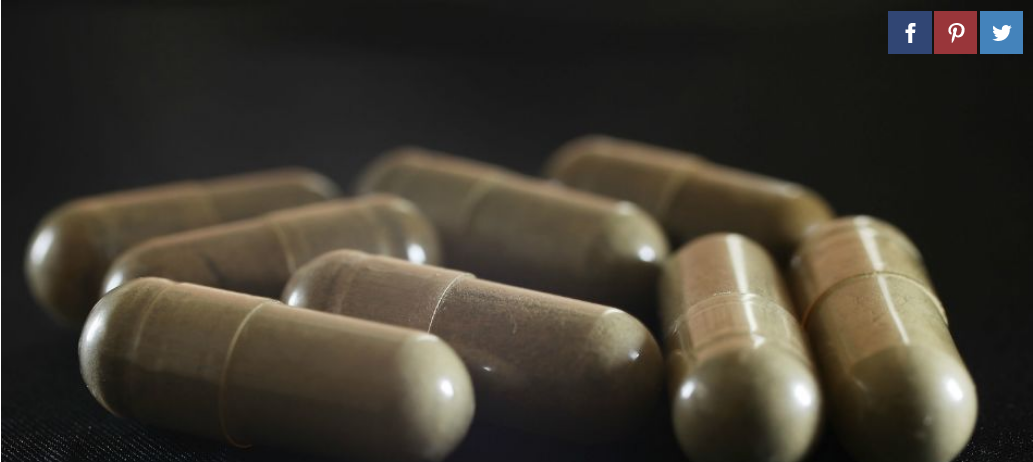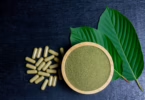[Opinion]
The FDA’s claim of evidence and data showing popular plant supplement kratom to be dangerous found severely lacking.
Though it won’t come as much surprise to anyone in the kratom community, it turns out, wonder of wonders, the Food and Drug Administration’s (FDA) advisory was pulled completely out of nowhere, according to Freedom of Information Act (FOIA) material released by Muckrock. If you’re not familiar with the FDA and Drug Enforcement Agency’s (DEA) years-long unfounded and (according to many pharmacology and addiction researchers) entirely unscientific war on kratom, then you might be unaware that the FDA’s recent advisory against kratom marked the plant as some sort of “deadly killer.” In addition to making false claims of kratom being linked to 36 deaths, they went as far as to say the plant that has helped thousands kick opiates for chronic pain or beat withdrawal from illicit opiates and opioids would worsen the opiate crisis we are in the midst of.
Why Is The FDA Commissioner Spreading Misinformation About Kratom #kratom https://t.co/yZAzvv3H84
— KratoPharm (@KratoPharm) November 28, 2017
The FDA made multiple false claims regarding kratom itself, the way it is marketed, and who used it. Despite the availability of a wealth of data on kratom (dozens of animal trials and other research in the scientific literature, an 8-factor analysis by a former head of the National Institute for Drug Abuse, hundreds and hundreds of data), the FDA decided to use absolutely no sources to back up the claims in their advisory.
The FOIA request was filed by Anthony Roberts who requested “copies of all evidence and all validating documents, plus related proof, that the FDA relied upon when making all of the claims about kratom” that were released in their advisory of November 14, 2017.
The FDA made numerous medical claims regarding kratom’s safety, claiming it was responsible for organ damage. FDA further claimed that it was marketed as a “safe treatment” with “broad healing properties.” Mr. Roberts called them on this, asking for specific documentation that factored in to their claims. Claims about the “proponents of the plant” also had words placed in their mouth via the FDA press release. “The FDA knows…” the press release read several times. Mr. Roberts calls their hand, “How does the FDA know this? Please provide all documents relied upon as support for this claim,” time and again requesting “validation and documentation” and the supporting evidence for what would, otherwise, be completely baseless claims with no scientific supporting evidence.
“What evidence? Please provide said evidence. Again, I am seeking the documents the FDA has relied upon, or experts consulted, to come to these conclusions. Additionally, I am also seeking any emails (whether sent to the FDA or any employee or director of the FDA, by a lobbying group, PAC, or any other outside source, as well as internally composed/generated emails). I additionally seek internal documents, including but not limited to memorandum of interviews and white papers, that offer the opinions or facts used to support the preceding, quoted, claims found in the press release.
BREAKING NEWS: A new review by the American Kratom Association of the FDA Adverse Event Reporting System (FAERS) database shows that, from 2011-2017, not a single death has been attributed solely to kratom anywhere in the United States.
— American Kratom Association (@TheKratomAssn) November 29, 2017
“Here, I am also seeking to answer, with specificity, which opioids kratom resembles in terms of risk of death. Here, as ‘similar risk’ has been mentioned, I am seeking the documentation and statistical analysis, used by the FDA, that articulates or provides evidence of the ‘similar risk’ of kratom viz a viz other opioids.”
When Reuters wrote their piece on the advisory, it was mentioned that the Reuters reporter requested information on the supposed “36 deaths” and other data they were claiming. Reuters reported that the FDA referred them to the Freedom of Information Act to uncover those documents. It’s now evident that this was a bluff and, thankfully, FDA was called on it. Mr. Roberts was unrelenting in his demand for details. Below are the claims of the FDA in quotation marks and Roberts’ questioning of them.
“There’s clear data on the increasing harms associated with kratom.”
Please provide the ‘clear data’ in full.
“Calls to U.S. poison control centers regarding kratom have increased 10-fold from 2010 to 2015, with hundreds of calls made each year.”
Please provide details and records of these calls and statistics.
“The FDA is aware of reports of 36 deaths associated with the use of kratom-containing products.”
How is the FDA aware of these deaths? Please provide correspondence with any outside agencies or agents, whether governmental, private, or otherwise concerning these deaths. Additionally, please provide all evidence and documentation of these deaths, and further that they were associated with kratom.
“There have been reports of kratom being laced with other opioids like hydrocodone.”
Provide the reports referenced.
“The use of kratom is also associated with serious side effects like seizures, liver damage and withdrawal symptoms.”
Please provide evidence of kratom being associated with ‘seizures, liver damage and withdrawal symptoms.
“…FDA has evidence to show that there are significant safety issues associated with its use.”
Again, please provide the evidence FDA utilized and/or analyzed in the composition of this press announcement to come to this conclusion.
And what was this “clear data” that the FDA didn’t want to share with the Reuters reporter? Where was all this “evidence” referred to again and again that the FDA used in order to make their “scientific” conclusion? It didn’t take long for a response. The Center for Food Safety and Applied Nutrition “did not locate any records” in response to the request. What is more, despite sending the FOIA request on to the FDA, CSFAN considers the request closed concomitant to “an adequate search of appropriate files” for any records supporting the FDA’s false claims.
At this point in the FOIA process, an appeal can be made. Dr. Jack Henningfield, former head of the National Institute of Drug Abuse (NIDA) and current professor at Johns Hopkins University, is a drug abuse and addiction expert, and he recently expressed his opinion that the FDA advisory and the “kratom scare” were “junk science” at the American Kratom Association press conference. If the results of these FOIA documents are any evidence, that seems to be the case.







